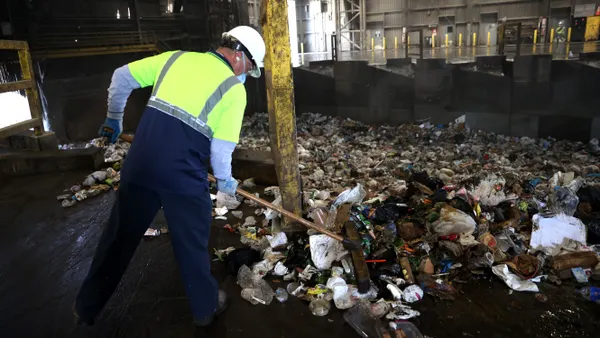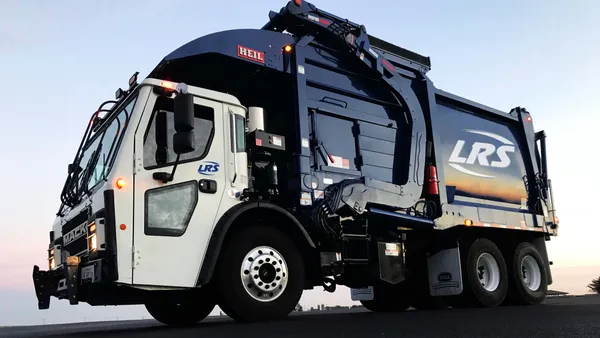Dive Brief:
- Recent analysis by Fire Rover's vice president of business development, Ryan Fogelman, indicates that at least 282 fires occurred at waste and recycling facilities between March 2016 to February 2017, as reported by Construction & Demolition Recycling.
- Fogelman based this count on searching for news reports with the same set of common terms. His research found that 41% of the reported fires occurred at waste transfer facilities and 27% occurred at metal recycling facilities. Additionally, he found 9% at paper recycling plants, 6% at organics processing facilities, 4% at rubber or tire facilities, 4% at construction and demolition facilities, 4% at plastics recycling plants and 1% at electronic scrap facilities.
- Based on Fogelman's analysis, the states with the most incidents were California, New York, New Jersey, Virginia and Michigan. Though based on population alone he questioned whether all incidents were being reported in other large states such as Texas.
Dive Insight:
The lack of clear data on waste and recycling fires in the U.S. has been an ongoing point of discussion in the industry. As noted by Fire Rover and Fogelman, these numbers may be artificially low because fires aren't always reported due to their size or the fact that they may be frequent occurrences at certain facilities. Based on a 2015 report of more than 250 waste or recycling fires in the U.K., Fire Rover estimates there could be more than 1,500 incidents occurring in the U.S. each year.
The frequency of these fires — sometimes as many as three per day — indicates that Fire Rover may be correct on the underreporting trend. Unless an incident causes enough smoke to be seen in the next town over, shuts down a facility to the point that waste or recyclables have to be diverted elsewhere or leads to a lawsuit it may not always get noticed by the media.
In many cases these fires can be prevented through maintaining regulatory compliance at facilities, though errant hazardous items from customers or unexpected reactions among materials in piles can be hard to predict. While discussions are currently underway between recycling industry representatives and government officials in the U.K. to develop clear prevention standards no comparable system has been proposed in the U.S. As the industry continues to focus more on safety this could become a greater priority.











